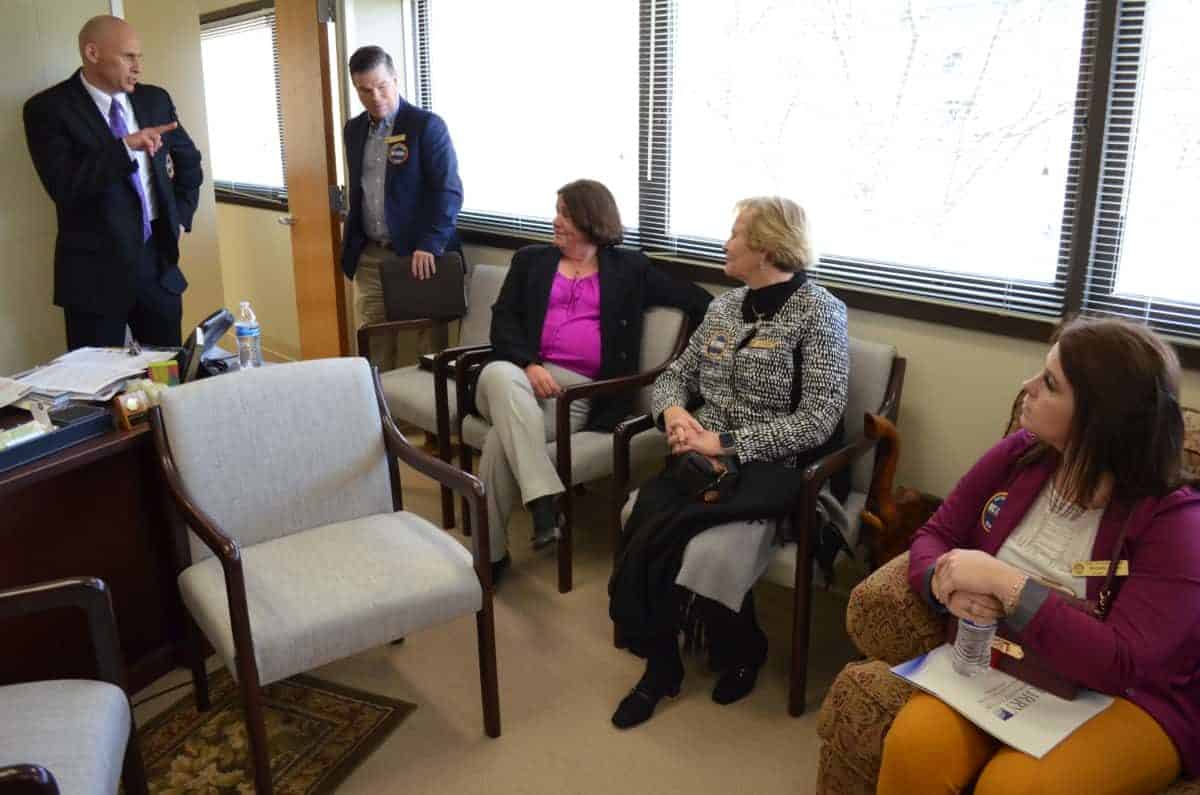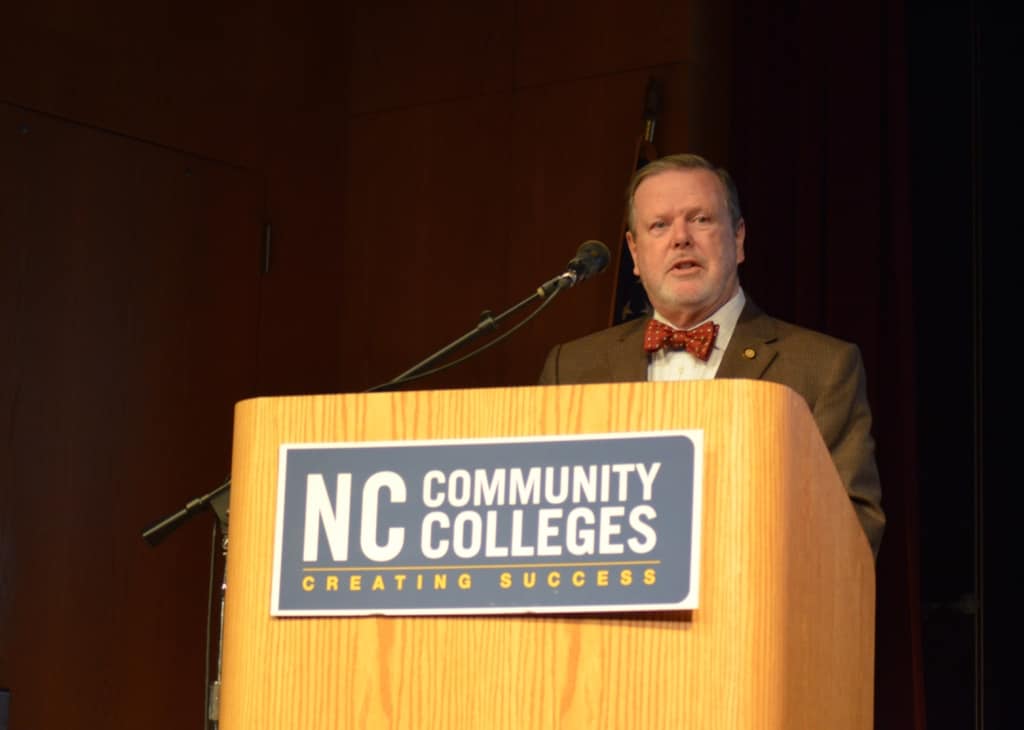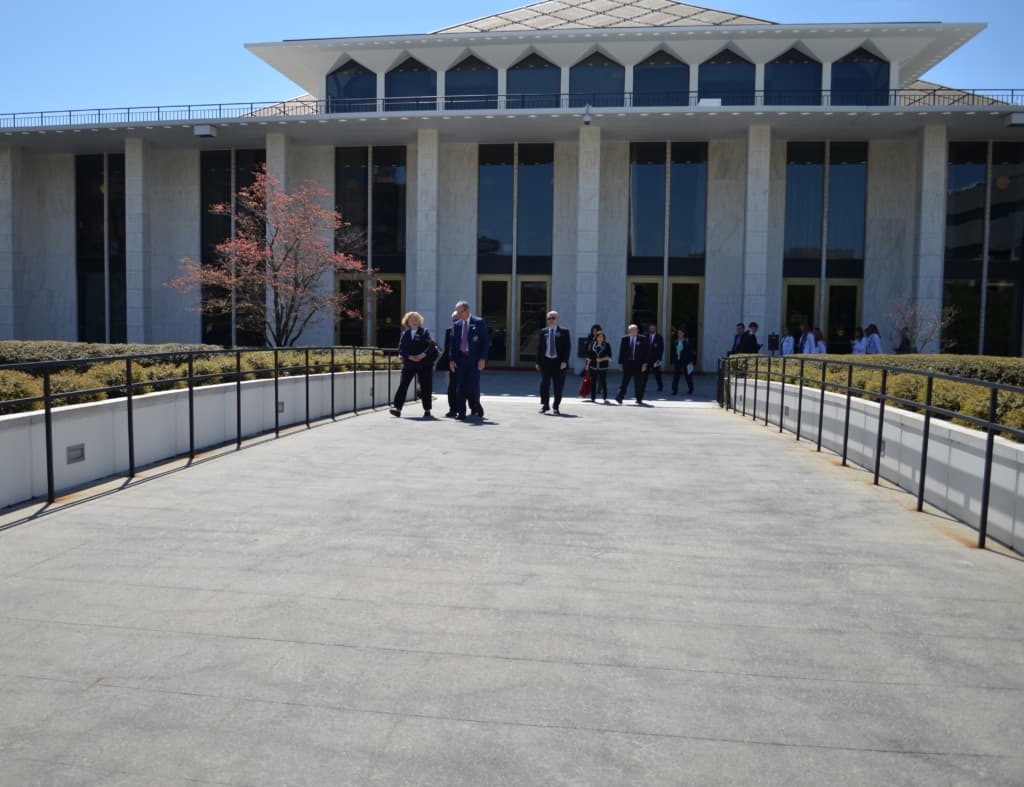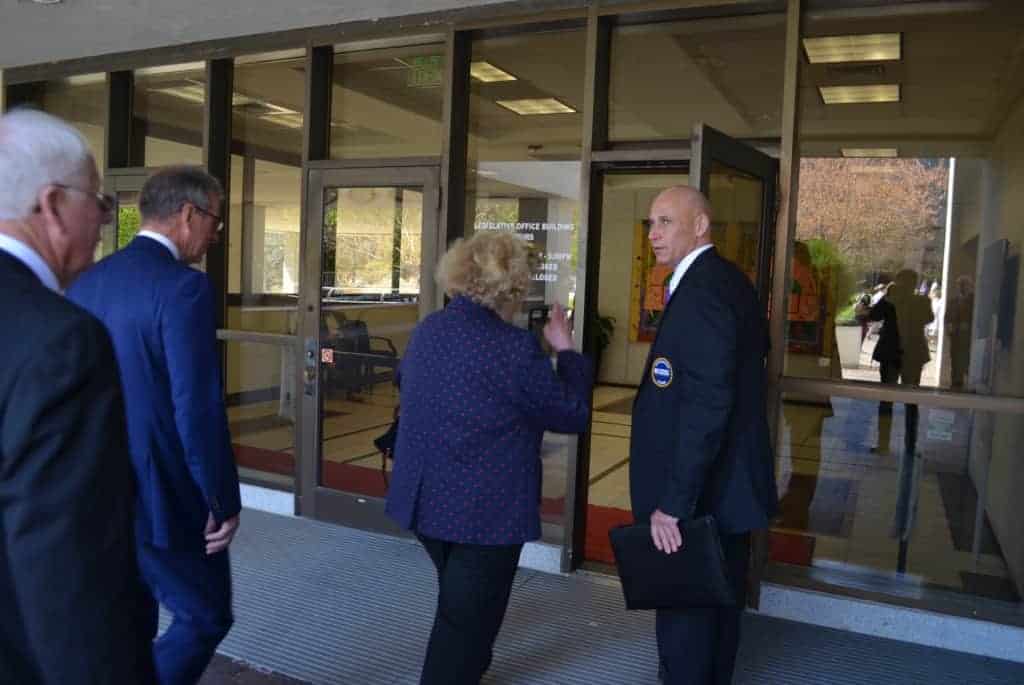

Yesterday, David Shockley, president of Surry Community College, along with members of the Surry Community College Board of Trustees, crowded into the office of Rep. Sarah Stevens, R-Wilkes, the House Speaker Pro Tempore. They talked about their families, the exciting legislation that would be on the House floor that day, and community colleges.
Someone remarked to Stevens that every lawmaker community college advocates heard from — Republican or Democrat — always had nothing but praise for the community college system. Are all General Assembly members really in support of the state’s 58 community colleges?
“We are, but sometimes your funding gets eaten up by the university system, who has always been the golden-haired child here,” Stevens said.
She went on to say that this view is starting to change now that more and more lawmakers are realizing that a four-year degree isn’t the only path for high school students.


The visit was part of a highly-coordinated, first-of-its-kind event for community colleges around the state: a day when representatives from all 58 community colleges, including faculty, staff, presidents, and students, not to mention members of the State Board of Community Colleges, staff from the system office, and even System President Peter Hans, descended on the General Assembly.
The legislative day kicked off with an event at the history museum across the street where a series of speakers talked about the importance of community colleges and prepped the crowd for what to expect and talk about when they met with legislators.
In addition to being Surry Community College’s president, Shockley is also the president of the North Carolina Association of Community College Presidents. He started off the event by talking about how the system and its presidents are united around their legislative agenda, and said he felt an enthusiasm surrounding this particular day.


“There is an energy that we have in the community college system that I have not felt in my time here,” he said.
He shared with the audience the stories of students — the drivers of what the community colleges do.
“Why is it that we’re trying so hard to do this? Why is it so critical for the work that we do?” he asked, before launching into a story about a homeless student who slept in her car while putting herself through the nursing program at Surry Community College.
“That’s what we do in our community colleges,” he said. “Those are the people we serve.”


Senate President Pro Tempore Phil Berger, R-Rockingham, spoke at the gathering early in the day, saying that he too was a community college student.
“I’m one of those folks, it took me eight years to get through those two years,” he joked.


He went on to say that, being married with small children, community college was essential to helping him succeed.
“It’s something that cannot be replaced in my life,” he said. “You all are doing that for people across the state every day.”
Berger went on to say that the state should invest more in its community college system, noting that at a time when student loan debt is high and higher education prices are steep, community colleges are a great deal.
“Our system … prepares students for the workforce quickly, comprehensively, and inexpensively. It is a win, win, win.”
House Speaker Tim Moore, R-Cleveland, also spoke in the morning, touching on a number of community college initiatives that lawmakers support. He spoke overall about the General Assembly’s support for community colleges and the dividends that come from it.
“We try to decide where are we spending money wisely, where are we doing it right?” he said. “…The community colleges are the best bangs for the buck that we have in terms of the money we spend.”
He said that lawmakers budget about $1 billion a year to the community college system, but he said he recognizes that the legislature can do more to help.
Senate minority leader Dan Blue, D-Wake, echoed much of the praise of other lawmakers, which he said, was no mistake. He said there was bipartisan support for the system in the General Assembly.
“Legislators … all will be in favor of doing what you tell us we need to do to make this the best community college system in the United States,” he said.
The crowd heard an overview of legislative priorities in the morning so that they would be primed to talk with their lawmakers. Their agenda are items included:
Short-term workforce funding: The system is asking for an additional $12 million on top of the 6.4 million recurring dollars lawmakers budgeted during the short session so that the funding level for this program would reach “parity” with the curriculum programs offered by community colleges. Short-term workforce training has, up to this point, only been funded at two-thirds the level of traditional academic training.
Better funding for IT: The Community College System is asking for $15 million to upgrade the workforce development-focused information technology systems that serve its 58 community colleges. The IT system is decades old at this point.
Expansion of the career coach program
More money for workforce-focused campuses
Better pay for faculty: Community college faculty salaries are 41st in the nation and 28% below the national average.
Eliminating barriers to enrollment
That last agenda item is a crucial one. A bill has been filed in the Senate that would allow graduation from a North Carolina high school to be used as evidence of in-state residence for the purposes of getting in-state tuition to community colleges and universities. This evidence would rebut the presumption that a student’s legal residence is the same as their parents. Additionally, the law as it is currently assumes that if a student is under 24, their residence is their parents’. The bill takes away the age requirement, so that a student of any reasonable age can provide evidence of living independently from their parents to gain in-state tuition.
This would help the system deal with an issue facing community colleges with regards to in-state tuition. Community college students are different than traditional university students, and sometimes using their parents’ residence as a decider on in-state tuition puts them at a disadvantage, because they may not live with their parents, they may be older students, etc. By saying that graduates of North Carolina high schools can use that as evidence of being North Carolina residents, this bill could help resolve some of the enrollment issues facing community colleges.


After the morning’s program, the gathered crowd split off around lunch time to go throughout the legislative building and talk with lawmakers.
Before they did, Community College System President Peter Hans sent them off with some final words.
“It’s time for lunch. It’s time to advocate,” he said, adding: “The legislature will see me. But they will listen to you.”




